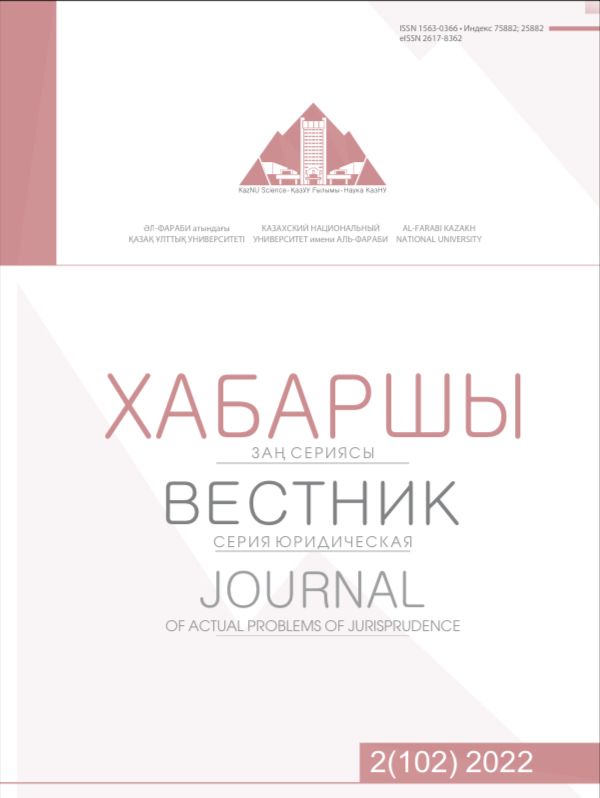Non-contractual obligations in intellectual property law
DOI:
https://doi.org/10.26577/JAPJ.2022.v102.i2.07Abstract
The article deals with obligations as the basis for the emergence of civil law relations, in connection with this, the specificity of non-contractual obligations is revealed. In particular, attention is paid to both illegal non-contractual obligations, namely torts, i.e. liabilities from causing damage to property, incl. in case of illegal use of objects of intellectual property rights. The article highlights the jurisprudence in connection with this the approaches of judges are analyzed in the consideration and resolution of disputes relating to the violation of exclusive rights to intellectual property. The article also discusses legitimate non-contractual obligations, for example, competitive obligations, the subject of which is the creation of the results of intellectual creative activity. Competitive obligations, in turn, are pre-contractual relations, i.e. precede the conclusion of an agreement, in particular, an appropriate agreement is concluded with the winner of a tender or auction on the creation of an object of intellectual property rights or an agreement on the sale of paintings, other objects of art. The article also considers such an extra-contractual obligation as a public promise of a reward, for example, for the creation of any work of science, literature, art. Thus, intellectual property law as a sub-branch of civil law closely interacts with other institutions of civil law.
Keywords: non-contractual obligations, obligations from infliction of harm, violation of the exclusive right, competitive obligations, tender, auction, public promise of remuneration.













